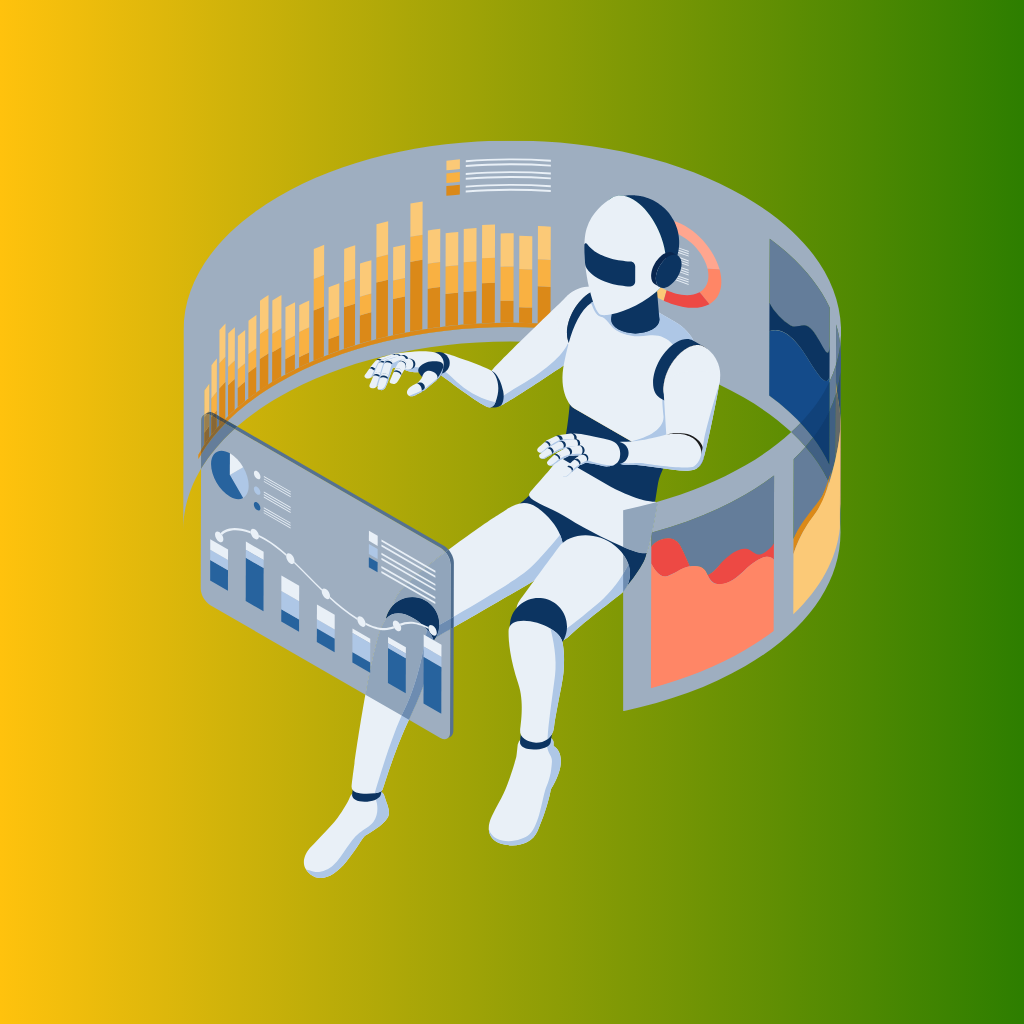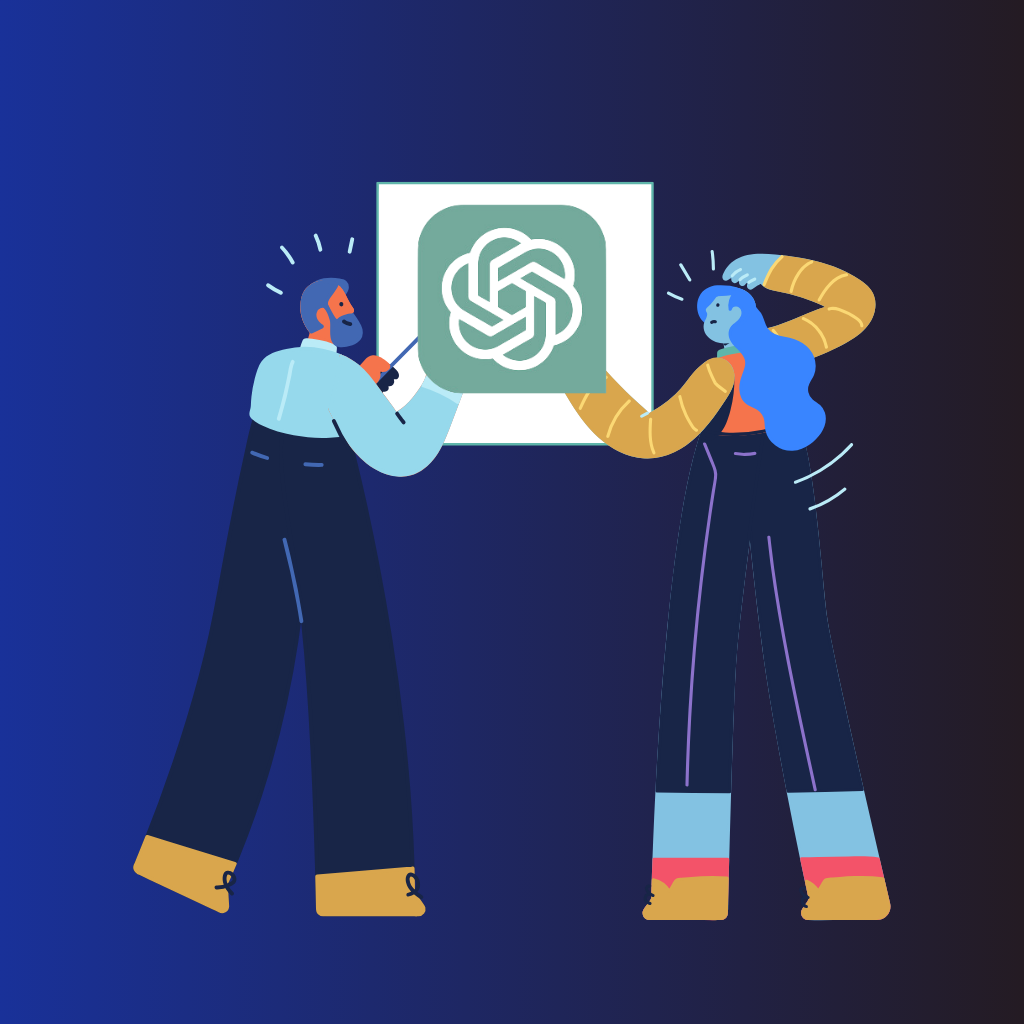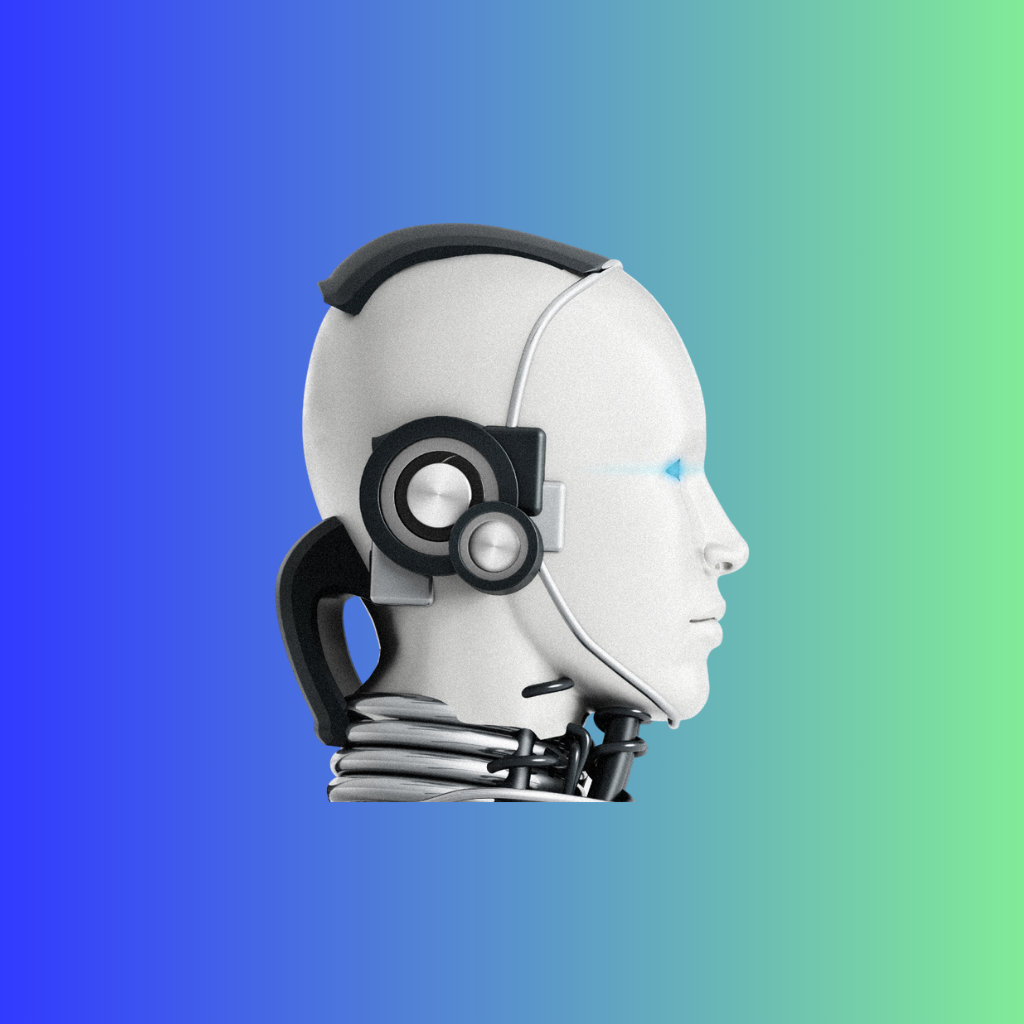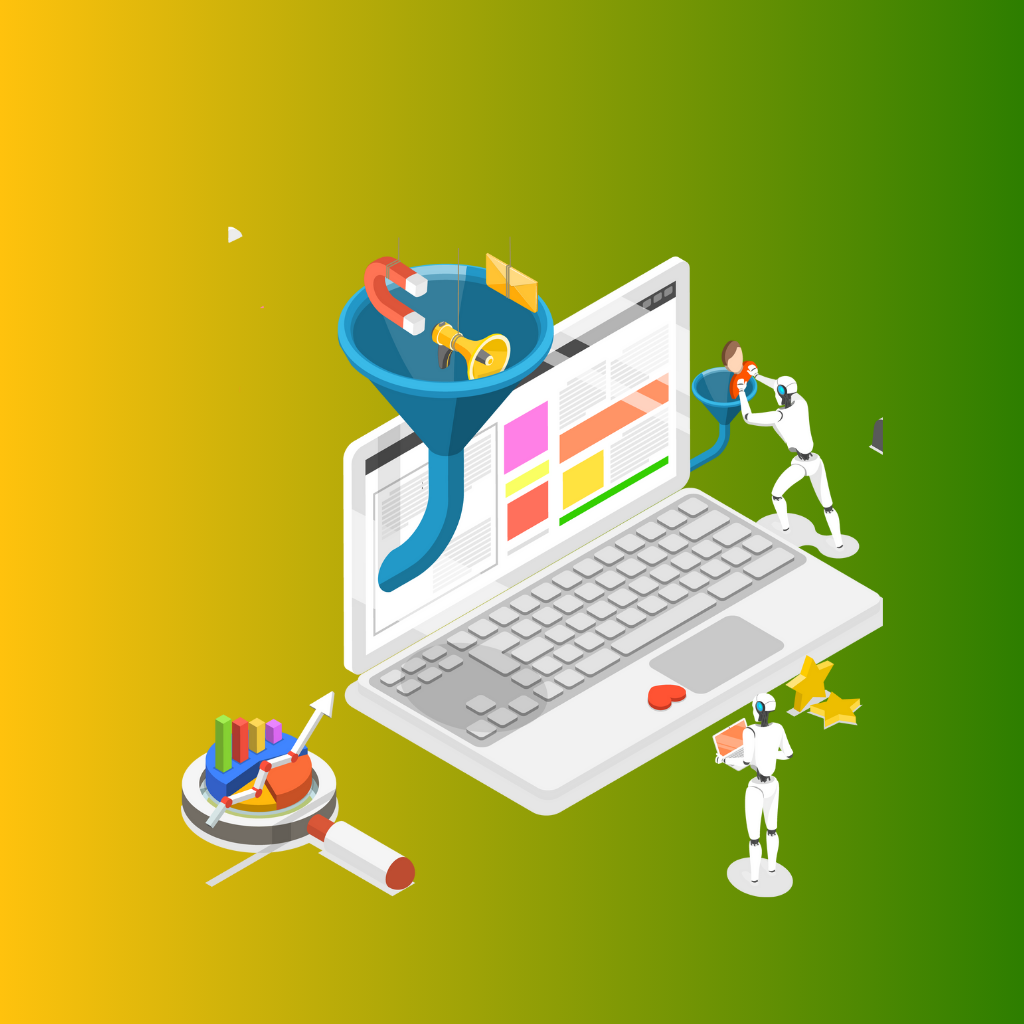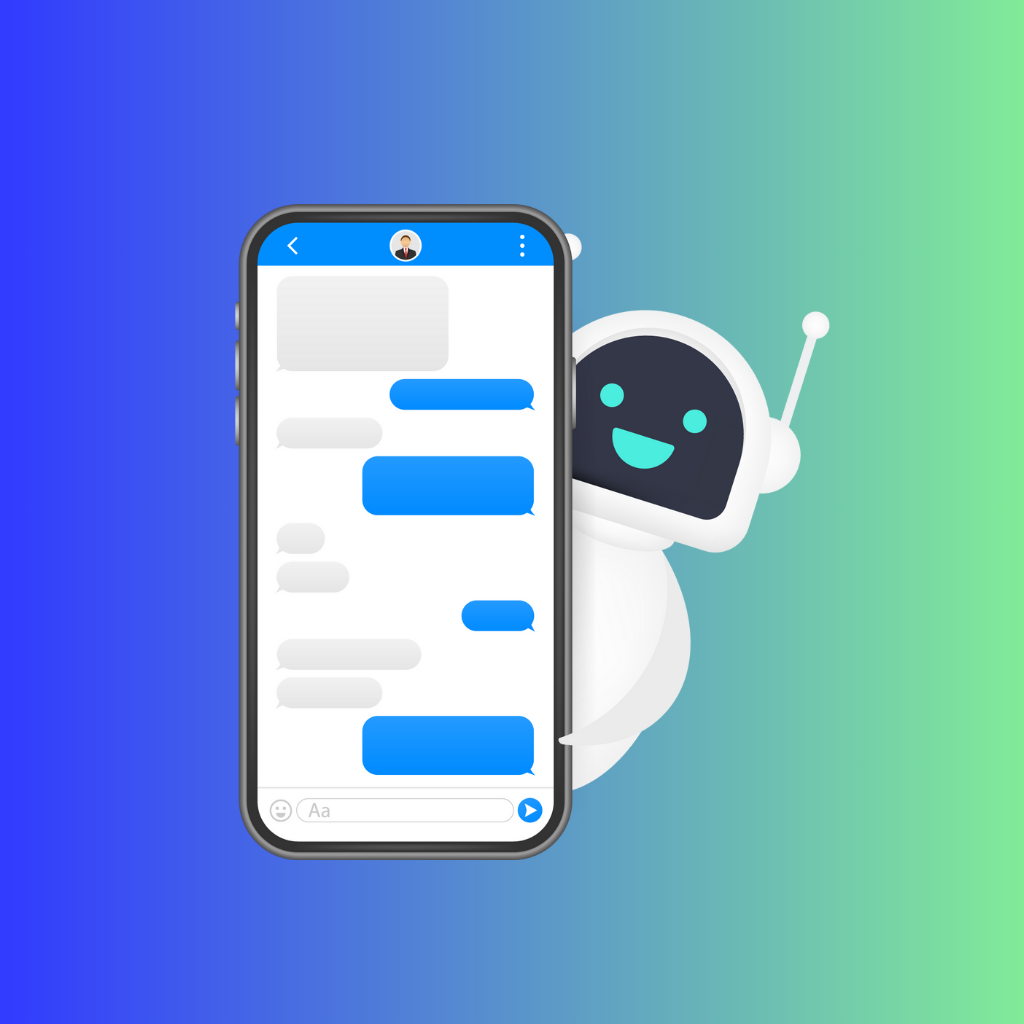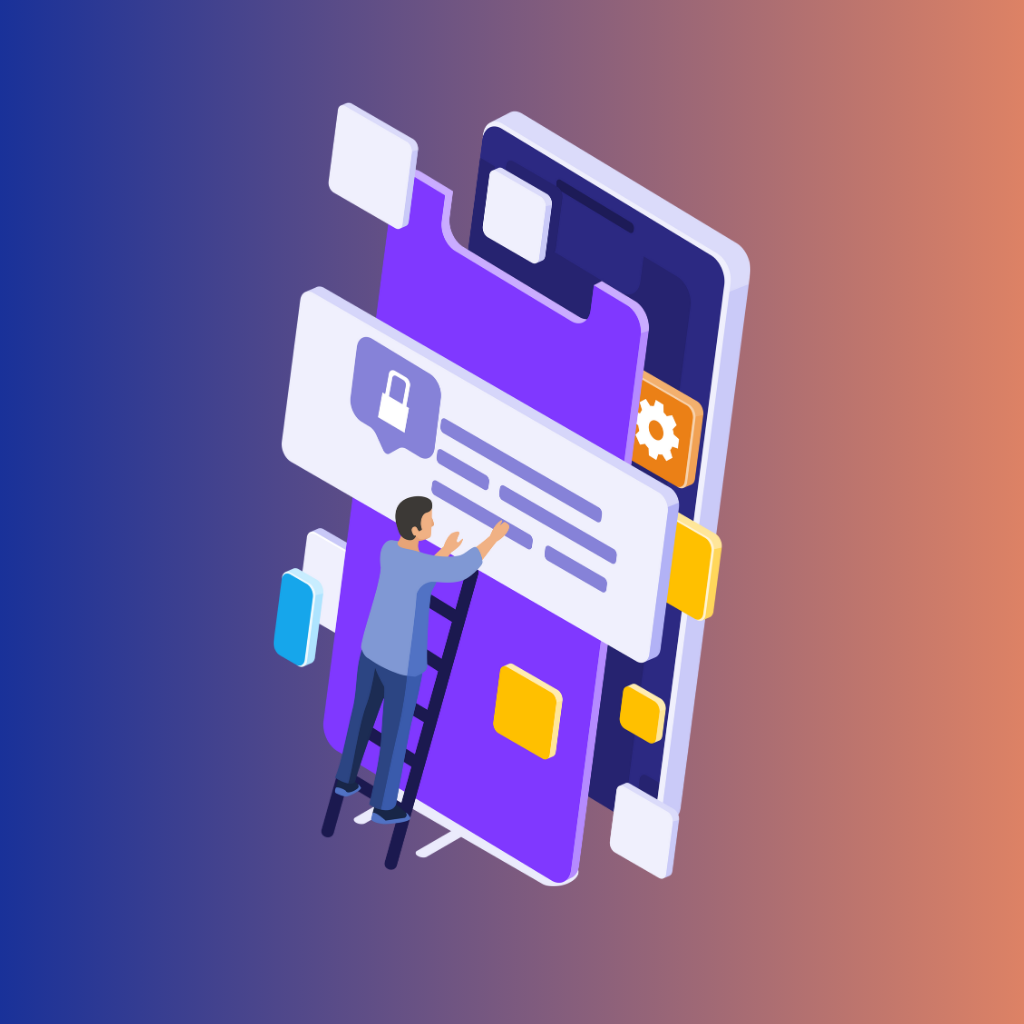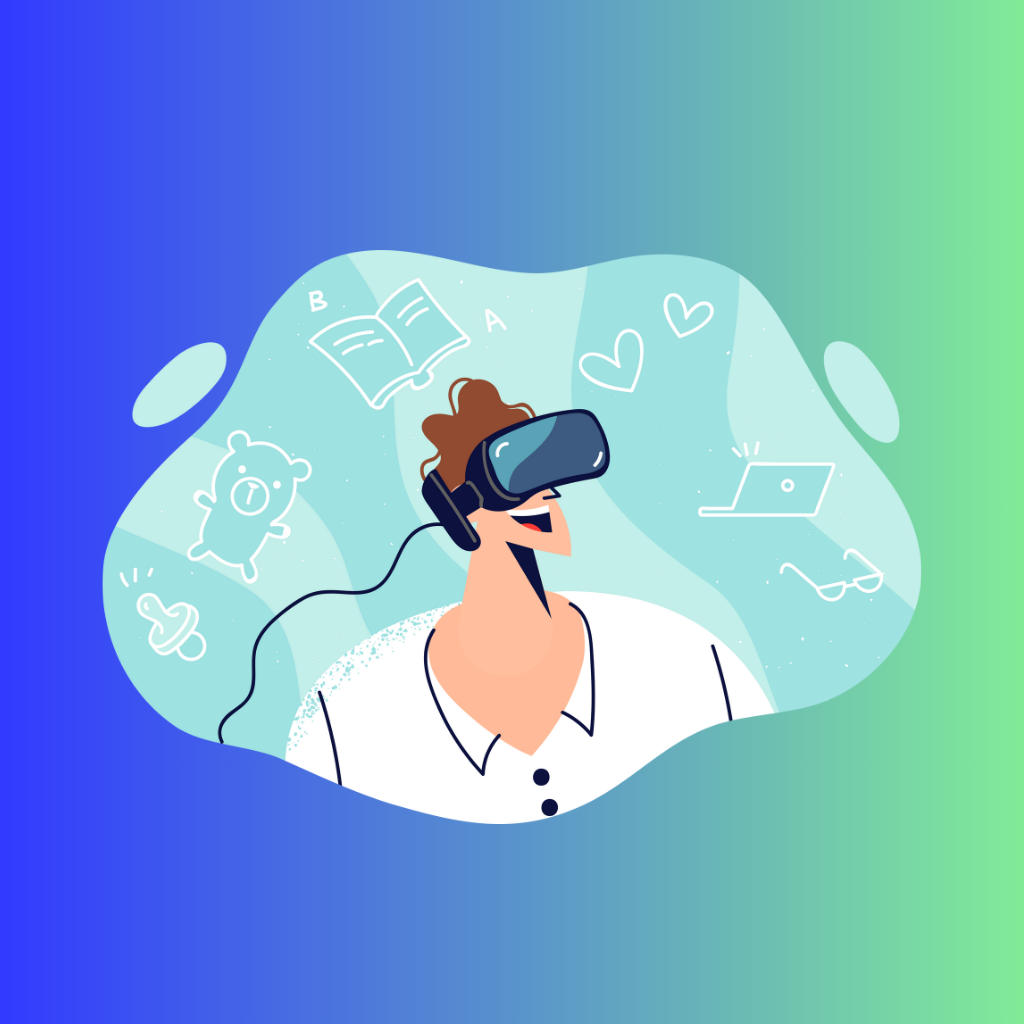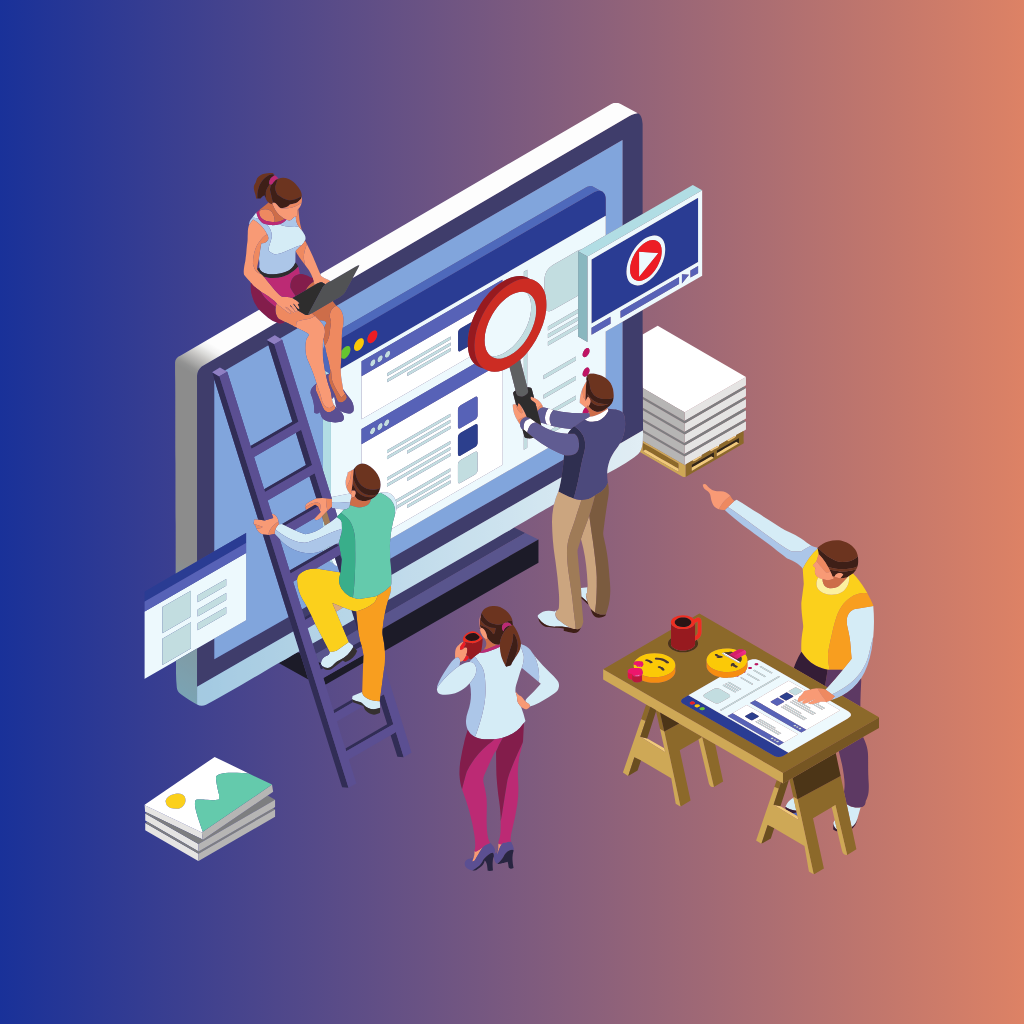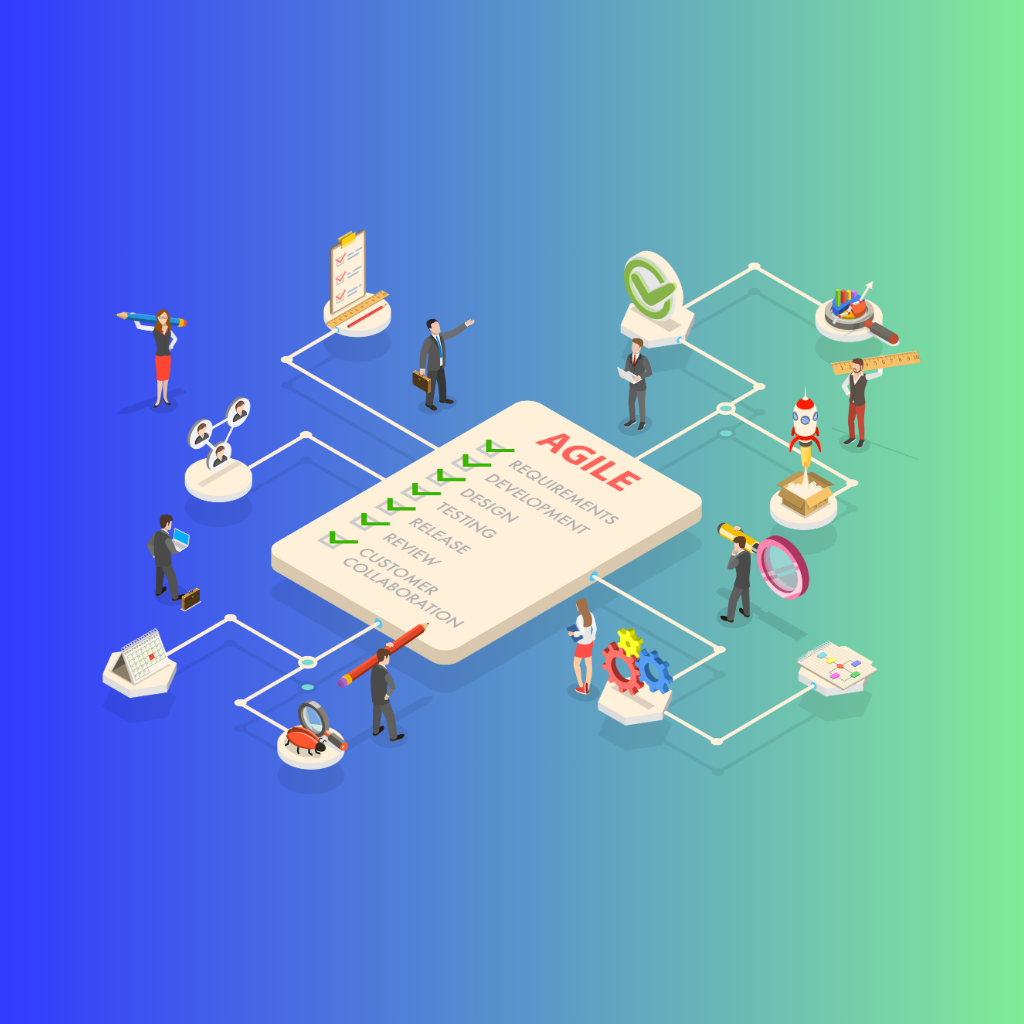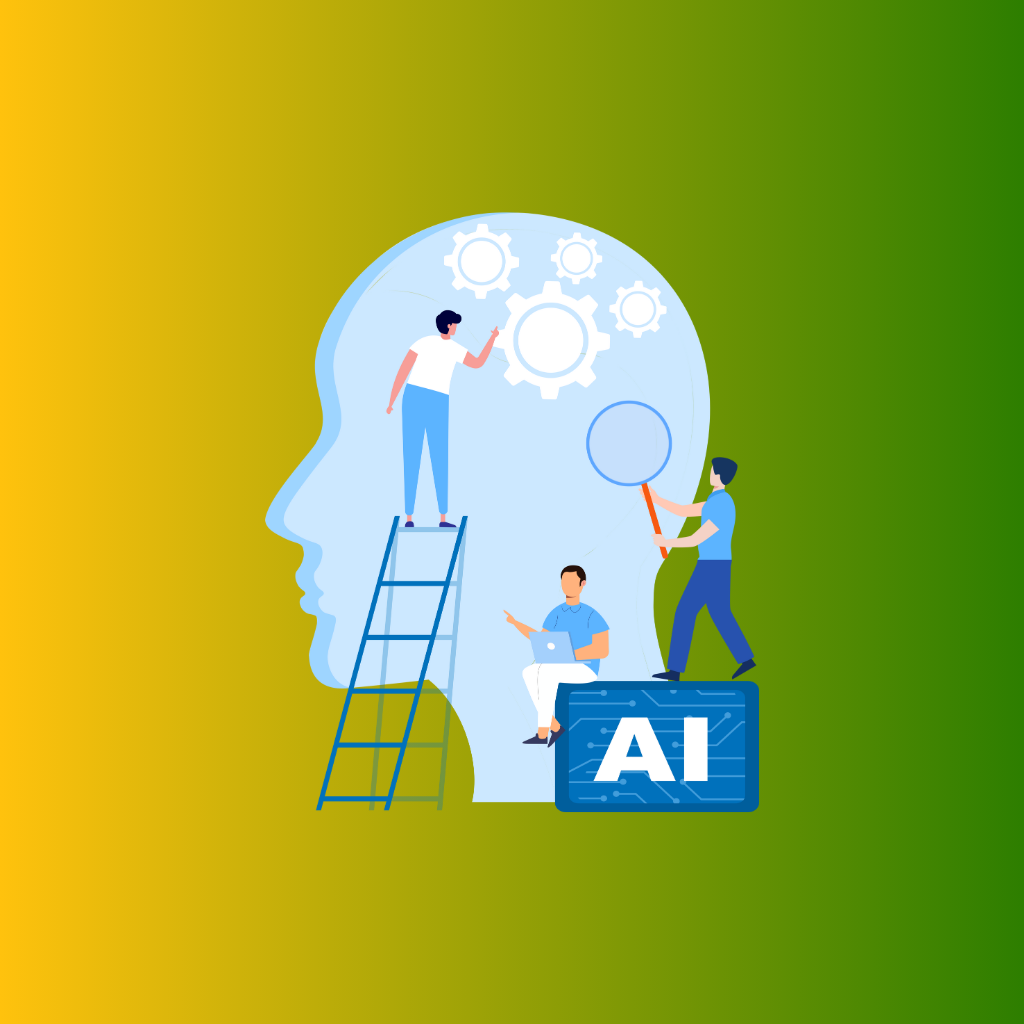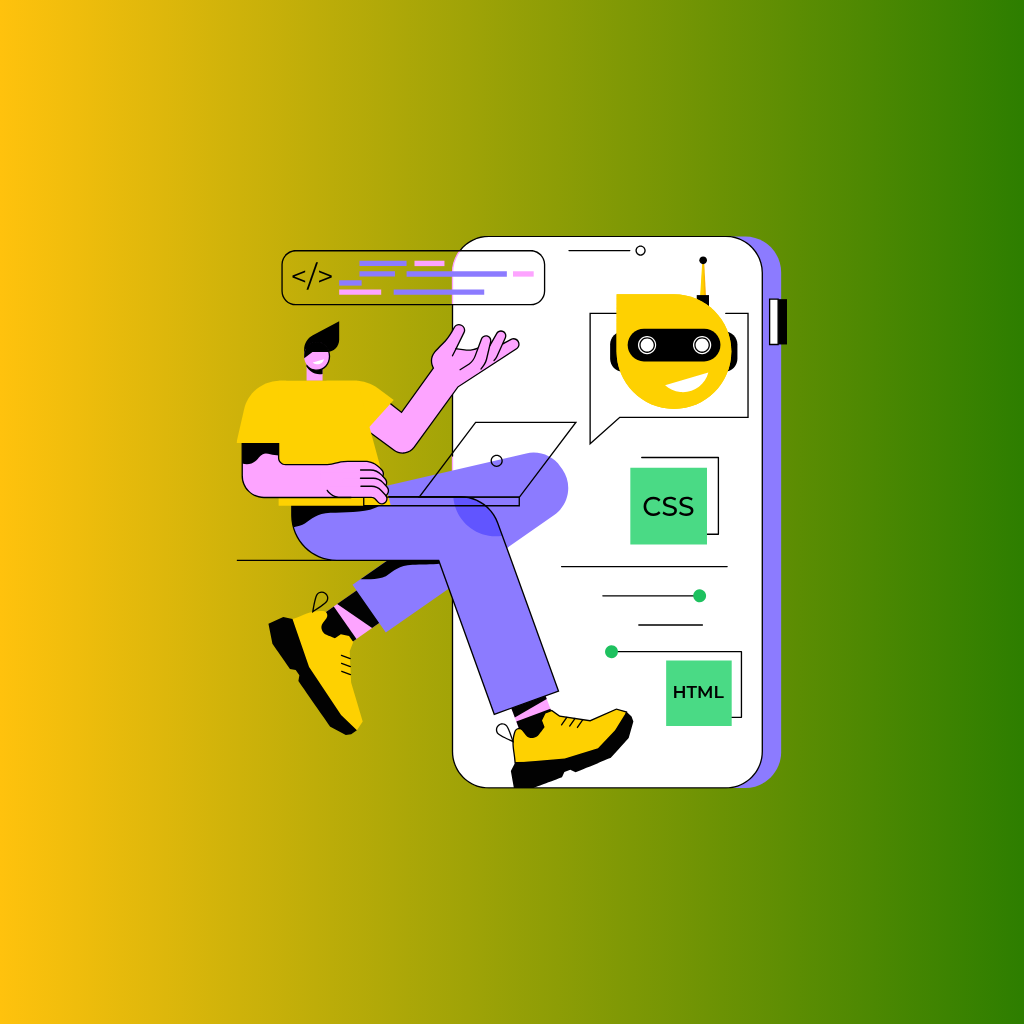Web development is an ever-evolving field, constantly being reshaped by the latest technological advancements and changing user expectations. In recent years, one of the most significant shifts has been the increasing integration of Artificial Intelligence (AI) into the fabric of technology. This integration marks a pivotal moment, promising to redefine the ways we create, design, and interact with web applications. AI, with its ability to learn from data, make predictions, and automate complex tasks, is not just an add-on but is becoming a core component of technological innovation.
As we stand at this crossroads, it's essential to understand how AI is set to revolutionize web development. This transformation is not merely about making processes faster or more efficient; it's about fundamentally altering how web applications are conceived, designed, and delivered. The promise of AI in web development lies in its potential to bring about unprecedented levels of personalization, efficiency, and innovation, creating web experiences that are more intuitive, accessible, and engaging for users.
This blog post aims to explore the evolving role of AI in web development. By delving into the latest AI technologies shaping this field, the benefits of integrating AI into web development processes, and the challenges and considerations that come with it, we'll uncover how AI is not just changing the game but also setting a new standard for what web applications can achieve. As we look toward an AI-driven future, it's clear that embracing these technologies is not just advantageous but essential for developers and businesses aiming to stay at the forefront of web innovation.
I. The Evolution of AI in Technology
The journey of Artificial Intelligence (AI) is a fascinating saga of innovation, stretching from the earliest days of computing to the sophisticated algorithms that power today’s digital world. Initially conceptualized as a branch of computer science that attempts to mimic human intelligence, AI has grown from simple, rule-based algorithms to complex systems capable of learning and making decisions. This evolution has been propelled by significant advancements in computational power, data availability, and algorithmic innovation, leading to AI's pervasive influence across various sectors, including web technology.
A Brief History of AI Development
The history of AI can be traced back to the mid-20th century when the first computers were developed, and scientists began to ponder the possibility of creating machines that could think and learn like humans. Early milestones included the creation of the Turing Test by Alan Turing, a method for determining whether a machine could exhibit intelligent behavior indistinguishable from that of a human. Over the decades, AI development went through various phases of excitement and disillusionment, known as the "AI winters," when progress slowed due to technical and funding challenges.
However, the last two decades have seen a resurgence of interest and investment in AI, driven by breakthroughs in machine learning (ML), a subset of AI that focuses on developing algorithms capable of learning from and making predictions on data. The emergence of deep learning, a more advanced form of ML that utilizes neural networks to process information in ways similar to the human brain, has further accelerated AI's capabilities and applications.
Current Applications of AI in Web Technology
Today, AI is an integral part of web technology, enhancing the way websites and web applications are designed, developed, and experienced by users. Search engines use AI to deliver more relevant search results, social media platforms employ it to curate personalized content feeds, and e-commerce sites leverage it to recommend products. AI's role in web development extends beyond the user experience, touching on aspects like search engine optimization (SEO), security, and content generation, where it helps in creating more dynamic, secure, and user-focused web solutions.
One of the most visible applications of AI in web technology is the use of chatbots and virtual assistants. Powered by natural language processing (NLP), these AI-driven tools can understand and respond to user queries in a conversational manner, providing assistance or guiding users through websites. This not only enhances user engagement but also improves accessibility, making information and services more readily available to a wider audience.
As we delve deeper into the various ways AI technologies are shaping web development, it becomes evident that AI's role is not just supportive but transformative. The ongoing evolution of AI promises to bring about further innovations, making web applications more intuitive, personalized, and efficient. The journey of AI in technology, particularly in web development, is an ongoing narrative of progress, presenting both opportunities and challenges for developers and businesses alike.
II. AI Technologies Shaping Web Development
The landscape of web development is undergoing a transformative shift, thanks to the integration of various AI technologies. These advancements are not just enhancing the capabilities of web applications but are also redefining the user experience. Let's explore the key AI technologies that are currently shaping web development:
Machine Learning & Predictive Analytics
Machine learning, a subset of AI, is making significant strides in personalizing the user experience on the web. By analyzing vast amounts of data on user behavior, machine learning algorithms can predict future actions and tailor content to meet individual preferences. This level of personalization is evident in features like customized product recommendations on e-commerce sites or personalized content feeds on social media platforms. The goal is to make interfaces more intuitive, ensuring that users find what they need or might be interested in with minimal effort.
Natural Language Processing (NLP)
NLP is revolutionizing the way users interact with web applications. This technology enables machines to understand and interpret human language, making it possible to have conversations with chatbots that feel increasingly natural. NLP is the driving force behind AI-driven support systems and virtual assistants that can handle a wide range of user queries and tasks, from customer service inquiries to navigating websites. By making interactions more human-like, NLP is significantly enhancing user engagement and satisfaction.
Automated Design and Development Tools
AI is streamlining the web design and development process through automated tools that can generate layouts, suggest design elements, and even correct code. These tools use AI to understand design principles and apply them to create aesthetically pleasing and functional web designs. For developers, AI-powered code assistants can identify errors and suggest optimizations, making the development process faster and more efficient. This automation allows developers and designers to focus on more complex and creative tasks, elevating the quality of web applications.
AI in Testing and Quality Assurance
Ensuring that web applications are robust and error-free is critical. AI technologies are increasingly being used in automated testing tools to identify and rectify bugs more efficiently. These tools can simulate user interactions on a vast scale, uncovering issues that might not be evident during manual testing. By learning from each test, AI-powered tools can predict where future problems might arise, helping developers proactively address potential issues. This not only speeds up the testing process but also contributes to creating more reliable and high-performing web applications.
The integration of these AI technologies into web development is not just about leveraging new tools; it's about rethinking how we approach the design and development of web applications. As these technologies continue to evolve and mature, their impact on web development is set to increase, offering even greater possibilities for innovation and personalization. Embracing these AI advancements is key for developers and businesses looking to create cutting-edge web experiences that meet the ever-changing expectations of users.
III. Benefits of Integrating AI into Web Development
The integration of Artificial Intelligence (AI) into web development brings a multitude of benefits, driving efficiency, enhancing personalization, improving accessibility, and fostering innovation in user interfaces. These advantages underscore the transformative impact AI is having on the field of web development.
Increased Efficiency
One of the most immediate benefits of AI in web development is the significant increase in efficiency it brings. AI algorithms are adept at automating repetitive and time-consuming tasks, such as data entry, code generation, and testing. This automation frees up developers to focus on more complex and innovative aspects of web development, thereby speeding up the development process and reducing the time to market for new applications. Furthermore, AI can analyze vast amounts of data more quickly and accurately than humans, aiding in decision-making and optimization processes that further streamline development workflows.
Enhanced Personalization
AI's ability to process and analyze large datasets enables a level of personalization previously unattainable. Through machine learning and predictive analytics, web applications can deliver content and experiences that are tailored to the individual preferences and behaviors of users. This personalization enhances user engagement and satisfaction, as content feels more relevant and interfaces more intuitive. Whether it's through personalized product recommendations, customized content feeds, or adaptive user interfaces, AI-driven personalization is setting a new standard in user experience.
Improved Accessibility
AI technologies are also making significant strides in making the web more accessible to people with disabilities. Tools like voice recognition and natural language processing allow users to interact with web applications through speech, which is invaluable for users with visual impairments or physical disabilities that make traditional input methods difficult. Similarly, AI-powered content moderation tools can automatically identify and describe images or translate speech to text, breaking down barriers to content accessibility. By leveraging AI, developers can create web applications that are truly inclusive, extending their reach and usability.
Innovative User Interfaces
AI is driving innovation in user interface design by enabling the creation of dynamic, intelligent interfaces that anticipate and adapt to user needs. These interfaces can adjust layouts, content, and functionality based on user behavior, creating a more engaging and efficient experience. For instance, AI can analyze the context of user interactions to provide more relevant information or options, reducing the cognitive load on the user and making navigation more intuitive. This ability to create responsive and adaptive user interfaces is redefining what is possible in web design, pushing the boundaries of user experience.
In sum, the integration of AI into web development is not just enhancing existing processes and capabilities; it's opening up new avenues for innovation, efficiency, and inclusivity. These benefits collectively contribute to the creation of web applications that are more personalized, accessible, and user-friendly, setting a new standard for what web experiences can be. As AI technologies continue to evolve, their role in web development is set to become even more pivotal, underscoring the importance of embracing AI for anyone involved in creating the next generation of web applications.
IV. Challenges and Considerations
While the integration of Artificial Intelligence (AI) into web development heralds a new era of innovation and efficiency, it also introduces a set of challenges and considerations. These encompass ethical and privacy concerns, technical barriers, and the skill gap, each requiring careful navigation to harness the full potential of AI in web development.
Ethical and Privacy Concerns
The increased personalization that AI enables comes with heightened ethical and privacy concerns. As AI systems collect and analyze large amounts of user data to offer personalized experiences, the risk of infringing on individual privacy escalates. Developers and businesses must navigate the fine line between providing personalized content and maintaining user trust by ensuring data protection and privacy. This includes adhering to data protection regulations, such as the General Data Protection Regulation (GDPR) in Europe, and implementing transparent data collection practices. Balancing personalization with privacy is not only a technical challenge but also an ethical imperative in the development of AI-driven web applications.
Technical Barriers
Integrating AI into web development is not without its technical challenges. Existing web development frameworks and infrastructure may not be readily compatible with the latest AI technologies, requiring significant modifications or the adoption of new tools and platforms. This integration process can be complex and time-consuming, necessitating a deep understanding of both web development and AI technologies. Furthermore, issues such as data quality, scalability, and performance optimization present ongoing challenges in the effective implementation of AI in web projects. Overcoming these technical barriers requires a proactive approach to learning and adaptation, as well as a willingness to experiment with new solutions.
Skill Gap
The rapid advancement of AI technologies has led to a significant skill gap in the industry. Many web developers may find themselves lacking the necessary skills to work effectively with AI technologies. This gap is not just about technical skills, such as programming in new languages or understanding machine learning algorithms but also about conceptual knowledge, such as appreciating the implications of AI for user experience and privacy. Addressing this skill gap is crucial for the successful integration of AI into web development. It requires ongoing education and training opportunities, both for individual developers and within organizations, to ensure that teams are equipped to leverage AI technologies to their fullest potential.
Navigating these challenges and considerations is essential for harnessing the transformative potential of AI in web development. It requires a thoughtful approach that balances innovation with responsibility, ensuring that AI-driven web applications are developed in an ethical, privacy-conscious, and technically sound manner. As the field continues to evolve, staying informed and adaptable will be key for developers and businesses looking to thrive in the AI-driven landscape of web development.
V. Preparing for the AI-Driven Future in Web Development
As Artificial Intelligence (AI) continues to make inroads into web development, it becomes imperative for developers and businesses alike to prepare for an AI-driven future. Adapting to these advancements will not only enhance the capability to deliver innovative web applications but also ensure competitiveness in an increasingly AI-centric landscape. Here are practical tips and resources to help navigate this transition:
Tips for Developers and Businesses
- Stay Informed: The field of AI is rapidly evolving. Regularly follow AI and web development blogs, podcasts, and publications to stay up-to-date with the latest trends and technologies.
- Embrace Continuous Learning: AI encompasses a broad range of technologies and methodologies. Engage in continuous learning through online courses, workshops, and certifications focused on AI and machine learning, especially those tailored to web development.
- Experiment and Prototype: Practical experience is invaluable. Experiment with AI tools and technologies in small-scale projects or prototypes to understand their capabilities and limitations within web development contexts.
- Focus on Data: AI's potential is unlocked through data. Develop skills in data analysis and management, understanding how to collect, process, and utilize data effectively and ethically in web applications.
- Adopt a Multidisciplinary Approach: AI integration into web development often requires collaboration across disciplines, including design, user experience (UX), and data science. Cultivate a multidisciplinary approach to projects, encouraging collaboration and knowledge exchange within teams.
- Prioritize Privacy and Ethics: As AI raises new ethical and privacy concerns, it's crucial to prioritize these considerations in your work. Familiarize yourself with relevant regulations and ethical guidelines to ensure your AI-driven applications respect user privacy and data protection norms.
Resources and Tools for Learning More About AI in Web Development
- Online Learning Platforms: Websites like Coursera, edX, and Udacity offer courses on AI, machine learning, and their applications in web development, taught by experts from leading universities and tech companies.
- Developer Communities and Forums: Joining communities such as Stack Overflow, GitHub, or specialized AI and web development forums can provide insights, support, and collaboration opportunities.
- AI Frameworks and Libraries: Familiarize yourself with AI frameworks and libraries relevant to web development, such as TensorFlow, PyTorch, or Google's AI Platform, which offer tools and resources to implement AI functionalities in web projects.
- Conferences and Meetups: Attending industry conferences, workshops, and meetups on AI and web development is a great way to learn from experts, discover emerging technologies, and network with peers.
- Industry Blogs and Publications: Follow blogs and publications from leading tech companies and AI research institutions for the latest developments, case studies, and insights into AI and web development.
Preparing for an AI-driven future in web development requires a proactive approach to learning and adaptation. By staying informed, embracing continuous learning, and leveraging available resources and tools, developers and businesses can navigate the challenges and opportunities presented by AI, ensuring they remain at the cutting edge of web application development.
Conclusion
The journey through the evolving landscape of web development, shaped by the integration of Artificial Intelligence (AI), highlights a future where web experiences are not just functional but highly personalized, intuitive, and accessible. We've explored the transformative role of AI technologies, such as machine learning, natural language processing, automated design tools, and AI-driven testing, in enhancing the efficiency, personalization, accessibility, and innovation of web applications.
The benefits of integrating AI into web development are clear: increased efficiency in the development process, enhanced personalization for users, improved accessibility, and the creation of innovative user interfaces. These advancements promise to redefine the standards for user experience on the web, making applications more responsive to user needs and expectations.
However, the path to this AI-driven future is not without its challenges. Ethical and privacy concerns, technical barriers, and the skill gap present hurdles that developers and businesses must navigate carefully. Addressing these challenges requires a commitment to continuous learning, ethical practice, and cross-disciplinary collaboration.
Embracing AI technologies in web development is not merely about adopting new tools or automating tasks; it's about envisioning and building a new generation of web applications. These applications will not only meet the current demands of users but anticipate their future needs, creating more intelligent, engaging, and inclusive web experiences.
As we stand on the brink of this AI-driven era in web development, the potential for innovation and growth is immense. For developers, businesses, and users alike, the future of web development is bright, filled with opportunities to create web experiences that are more dynamic, personalized, and accessible than ever before. The journey towards integrating AI into web development is an invitation to participate in shaping the future of the web—a future where technology enhances human experience in ways we are just beginning to imagine. Embracing AI in web development is not just a pathway to technological advancement but a step towards creating a more connected, intuitive, and innovative digital world.
